@poemthink
New revised paperback edition of my novel SWEETBITTER, which won the Anisfield-Wolf Book Award, to be published in early 2023 by JackLeg Press.
Books recently submitted to publishers:
Marina Tsvetaeva: A Portrait in Poems (co-translated with Ilya Kutik)
Boris Pasternak: Selected Poems (co-translated with Ilya Kutik)
Ilya Kutik, The Wasp of Time: Selected Poems (co-translated with Ilya Kutik and others)
Bio and poems at https://www.poetryfoundation.org/search?query=reginald+gibbons
My most recent book of poems isRenditions (2021), published by Four Way Books. Publishers Weekly review: “Gibbons (Last Lake) honors a poetic heritage spanning cultures and centuries in his thoughtful 11th collection. Throughout, he invokes the work of other poets, including Pablo Neruda, Cesar Vallejo, Bertolt Brecht, and Marina Tsvetaeva as homage to the power of language to reinvent itself. Each poem is a “rendition” of another poet’s work, which allows Gibbons to celebrate the relationship between translation, creation, and artistic appropriation. His riffs on ancient writings reveal surprising echoes to the contemporary world, as in his take on eighth-century Chinese poet Wang Wei’s sense of urban isolation and angst in ‘On Argyle Street’: ‘smoky, cold, broken late-afternoon clouds / mob eastward. Roaming west, I see on side- / walks no one I know, no one who knows me.’ Memory becomes a way for Gibbons to give thanks to those poets who preceded him and made his own path as a poet possible, as he alludes in a rendition of Nelly Sachs: ‘A crack zigzagged open in Time // In peeked Memory.’ This book is full of deep respect for poets and the languages and cultures from which it borrows, emphasizing the shared connections in poetic tradition, even as it reimagines that tradition.”
A few poems:
~ “What Remains,” https://www.theguardian.com/books/2021/apr/27/poem-of-the-week-what-remains-by-reginald-gibbons
~ 3 poems in On the Seawall, https://www.ronslate.com/26269-2/
~ “You Know” (prose), in Brevity at https://brevitymag.com/nonfiction/you-know/
~ Poem, “My Greco-Russian Investigation (Pindar’s Third Pythian Ode),” at http://atlengthmag.com/poetry/two-responses-to-donald-trump/
~ Poem, “Bear,” Poetry magazine, at https://www.poetryfoundation.org/poetrymagazine/poems/148707/bear-5c09a60881e63.
~ “Ares the God of Blades,” “Pardon Me” (poems), at https://anotherchicagomagazine.net/2018/12/05/two-poems-by-reginald-gibbons/
~“Poem of the Day”: “A Veteran,” Nov. 12, 2018 at https://www.poetryfoundation.org/search?query=reginald+gibbons+a+veteran
~ Mandelshtam’s Greek Bees: Five poems by Reginald Gibbons, at https://classical-inquiries.chs.harvard.edu/five-poems-by-reginald-gibbons/
~ “The Poet Who Survived Stalin’s Poems: The Tale of Arsenii Tarkovsky and the Translation He Couldn’t Refuse” (essay–Pasternak too is in this piece) and translations of three poems by Andrey Tarkovsky (“Field Hospital,” “Might of mine: my sight,” “Friends, truth-trusters”), by Reginald Gibbons & Ilya Kutik, Literary Hub https://lithub.com/the-poet-who-survived-stalins-poems/
~ “Elderly Scribe at a Temple of the Muses” https://lithub.com/elderly-greek-scribe-at-a-temple-of-the-muses/
~ “The Imagination of Norman Manea” (essay), at https://lareviewofbooks.org/article/the-imagination-of-norman-manea/
~ On the 2019 New City annual “Lit50” (June 2019; no. 14, with novelist and poet Chris Abani) https://lit.newcity.com/2019/05/23/lit-50-2019-who-really-books-in-chicago/4/
~ Forthcoming: Boris Pasternak, Selected Poems, and Marina Tsvetaeva, A Portrait in Poems, co-translated by Reginald Gibbons and Ilya Kutik
~ AN ORCHARD IN THE STREET (short fiction and cnf, BOA Editions, Ltd.)
~ “Dead Man’s Things” from An Orchard in the Street selected for Best Small Fictions 2018.
“There is never a moment in these pieces which breaks the reader’s total immersion in Gibbons’ characters or those characters’ equal immersion in the singular moments of their lives. Here is truth so close to beauty and beauty so close to truth as to make no difference which came first.” —Kirkus on An Orchard in the Street:
~ LAST LAKE (poems, U. of Chicago Press 2016)
http://press.uchicago.edu/ucp/books/book/chicago/H/bo20698016.html
author page: http://press.uchicago.edu/ucp/books/author/G/R/au5844545.html
~HOW POEMS THINK (U. of Chicago Press, 2015)
http://press.uchicago.edu/ucp/books/book/chicago/H/bo20698016.html
“Insightful. . . . [Gibbons] is brilliant on the role of allusion and etymology in poetry; his observations on metrics are lively rather than scholastic; and his choices of examples are brilliant. This volume will enrich the experience of poetry for readers and writers of the art. . . . Highly recommended.” —Choice
“This is a writers’ book—a must for poets. Poet-critics get at the meaning behind literary forms, and Reginald Gibbons does just that. He analyzes leaps of thought urged by rhymes, metaphors, and lexical choices. Chapters on the translation of Russian and of ancient Greek poetry are dazzling. This enormously readable book is part memoir, part report, part essay—and always conjectural, reaching forward.” —Robert von Hallberg
“From ancient times to the present, poetry has created gods, and gods in turn have sustained poetry. Ranging from Homer, Pindar, and Sappho through French Symbolism and modern Russian to American poetry of our day, Gibbons has composed a hymn of praise to the spell-casting powers of patterned language. This erudite study mingles mysticism, philology, psychoanalysis, and mischief: it should provoke the liveliest arguments around.” —Rosanna Warren
“Demands attention to technique across the ages and, crucially, across languages.” The Nation
“Rich, conversational and enjoyable. . . . An insightful, sometimes moving reflection on poetry’s potential capacities.” Times Literary Supplement
“A reflective and sophisticated account. . . . [Gibbons’s] comparative approach . . . is highly astute to the different resources and the different resistances offered by different languages.” Year’s Work in Critical and Cultural Theory
“I’m fascinated by [Gibbons’s] discussion of the metaphysics of languages and the ways in which English, with its massive and particularizing vocabulary, enables different modes of thinking and feeling than, say, the Platonic idealism expressed by French. . . . Gibbons’s book is a bright star in the firmament of my current reading.” — Joshua Corey, Poetry Magazine
“There are so many things to admire in this book: its sound analyses, its wisdom about art’s relation to the psyche, its pioneering work in making other poetic traditions comprehensible to us. But above all else, it is timely. Contemporary ‘accessible’ poetry is impoverished by its ignorance of the dimensions Gibbons explores. Contemporary experimental poetry is aware of them, but, shaped by postmodernist theory, it ignores their roots in the emotions and the unconscious. Poets of whatever school, as well as all who are interested in poetics, will find their horizons expanded by reading this book.” —Alan Williamson, Modern Philology
“Poking into cobwebby corners, weaving narrative into discourse, using assemblage, How Poems Think is a trove. I read it with a pencil — until I saw that underlining everything was the same as underlining nothing.” —Beverley Bie Brahic, Poetry Magazine
“There are important considerations of rhyme in Russian poetry, discussions of classical Greek poetry, and there are brilliant moments of incisive commentary.” —PN Review
Reginald Gibbons, Frances Hooper Professor of Arts and Humanities at Northwestern University, is a poet, fiction writer, translator, literary critic. His books of poems include Last Lake (University of Chicago Press), Creatures of a Day (LSU Press; Finalist for the National Book Award in poetry; see https://www.ronslate.com/on-creatures-of-a-day-poems-by-reginald-gibbons-lsu-press/), and Slow Trains Overhead: Chicago Poems and Stories (University of Chicago Press). Three bilingual selections of his poems have been published: in Spanish and English, Desde una barca de papel (translated by Manuel Ulacia, Victor Manuel Mendiola, Jennifer Clement, and Jordi Doce, and edited by Jorde Doce, 2010, Littera Libros [Spain]); in Italian and English, L’Abitino Blu (translated by Piera Mattei, 2012, gattomerlino/superstripes); and in French and English, Je Pas Je (translated by Nathanael, 2014, e-book, recoursaupoeme.com).
His translations include Sophocles, Selected Poems: Odes and Fragments (Princeton University Press), as well as Sophocles’ Antigone and Euripides’ Bakkhai (co-translated with Charles Segal, Oxford University Press).
Gibbons has also translated Selected Poems of Luis Cernuda (California, 1977; reprint Sheep Meadow Press, 1999); Guillen on Guilen: The Poetry and the Poet (with A. L. Geist; Princeton, 1979); he has edited The Poet’s Work, (Univ. of Chicago Press, 1989), Goyen: Autobiographical Essays, Notebooks, Evocations, Interviews (Univ. of Texas Press, 2007), and a number of other books. Honors include Guggenheim and NEA fellowships in poetry, the Anisfield Wolf Book Award (for his novel Sweetbitter), the Carl Sandburg Prize, the Folger Shakespeare Library’s O. B. Hardison Jr. Poetry Prize, and inclusion in Best American Poetry and Pushcart Prize anthologies.
MORE at: http://www.english.northwestern.edu/people/gibbons.html


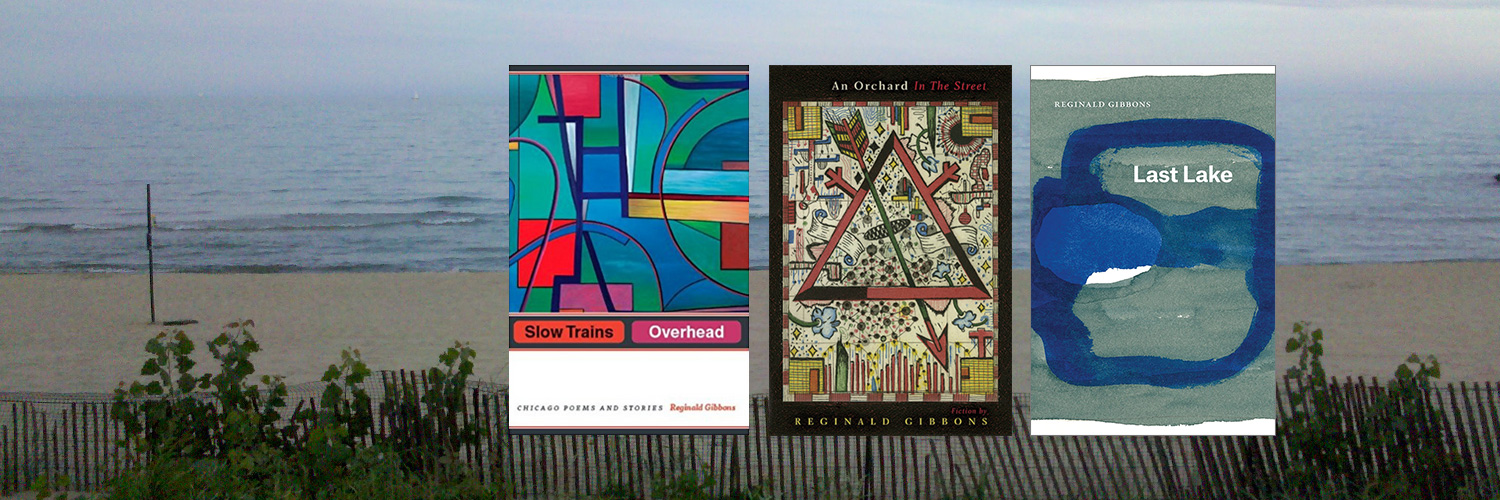
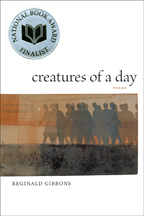
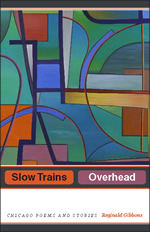
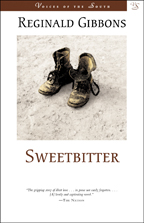
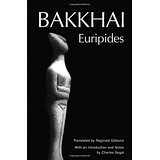
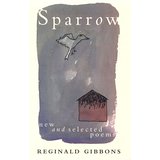

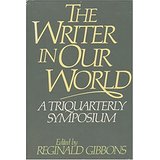

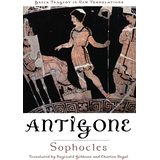
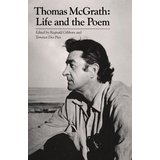
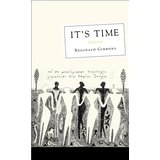

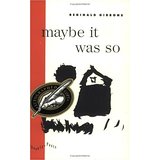
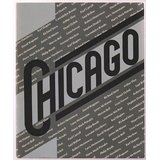


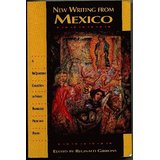

Hi, I´ve been reading and enjoying the poem “Because of Aphrodite” in English. I would like to know if there is a Spanish translation available and how I could get it. Thanks in advance.
I’m not aware of any Spanish translation. This site has been inaccessible to me for many months, and I’m guessing your query is already very old. But for what it’s worth, here’s an answer… —RG